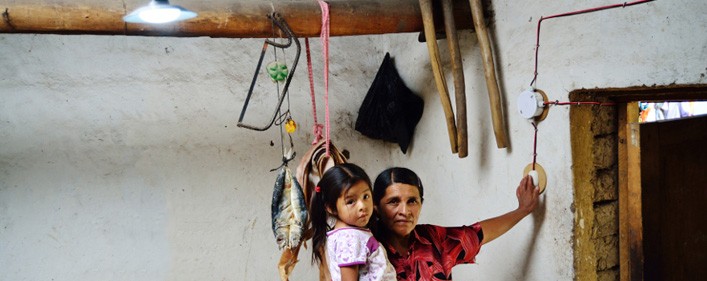The Light at Home (Luz en Casa) programme received an Honourable Mention for its 'scalability and long-term sustainability' in the Case Studies on Access to Energy, organised by WAME (World Access to Modern Energy), an initiative which aims to provide visibility to the issue of energy poverty in the framework of Expo Milano 2015.

The Expo, which is being held in Milan (Italy) from May to October, promotes a series of projects to address its main theme — Feeding the Planet, Energy for Life — from various standpoints. The WAME project aims to raise awareness about inequalities related to energy access in the world, proving it's possible to execute successful initiatives which contribute to the goal of universal access to energy. Global access to modern energy could provide access to water and food, reducing extreme poverty and improving human development.
Taking advantage of the unique opportunity provided by Expo Milano, WAME organised a Competition of Case Studies on Access to Energy, the goal of which was to select and present projects which have already been implemented and are of notable interest and importance in increasing access to energy in the world, in accordance with the United Nations Sustainable Energy for All initiative, in which ACCIONA is a participant.
The ACCIONA Microenergy Foundation presented Light at Home, access to sustainable electricity for human development, a case study for the Electricity at Home (Luz en Casa) programme implemented by ACCIONA Microenergía Perú which, in less than six years, has provided basic electricity to 3,900 low-income households, benefiting around 16,000 people in the rural areas of Cajamarca (Peru), which is not expected to have access to the electricity grid.
The case study presented was one of the six projects recognised by WAME which, in awarding an Honourable Mention, highlighted the following: “This project is outstanding in terms of the design of the business model and the solution to the problem of sustainability: electricity is provided via solar systems in isolated and dispersed areas, in a system that is similar to the grid approach, with an officially regulated social tariff, guaranteeing service quality and sustainability over time'.